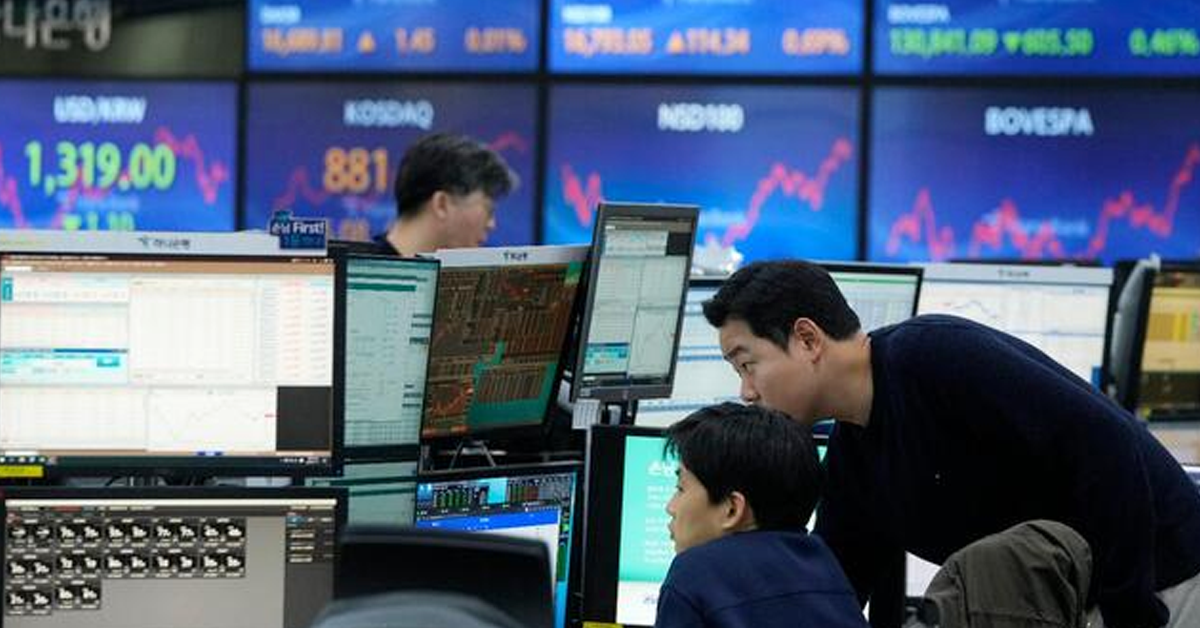Asian Shares Mixed After Wall Street Gains
Asian stocks experienced mixed performance on Tuesday following gains on Wall Street and a surge in U.S. bond yields as election-related issues influenced global markets.
U.S. futures declined, while oil prices increased. The Japanese yen fell to a near 38-year low, hitting 161.67 yen to the dollar early Tuesday. This depreciation in the yen boosted Tokyo’s benchmark Nikkei 225 by 1.1% to 40,074.69, as investors bought export-oriented shares.
In contrast, Australia’s S&P/ASX 200 dropped 0.4% to 7,718.20. South Korea’s Kospi also fell, losing 0.8% to 2,781.92, despite data indicating that the country’s consumer inflation slowed to an 11-month low in June.
Hong Kong’s market showed positive momentum after a holiday break, with the Hang Seng climbing 0.3% to 17,775.84. The Shanghai Composite Index had a modest increase of 0.1% to 2,995.78. Elsewhere in Asia, Taiwan’s Taiex gained 0.6%, while Bangkok’s SET index slipped by 0.4%.
On Wall Street, the S&P 500 rose 0.3% to 5,475.09. The Dow Jones Industrial Average inched up 0.1% to 39,169.52, and the Nasdaq composite gained 0.8% to 17,879.30. European markets saw significant activity, with France’s CAC 40 index jumping as much as 2.8% before settling for a 1.1% gain. Results from France suggested a far-right party might not secure a decisive majority in legislative elections, easing concerns over potential high-debt policies.
This year is significant for elections globally, with voters heading to the polls in the United Kingdom later this week and soon in other countries. In the U.S., pollsters are assessing the impact of the recent debate between President Joe Biden and former President Donald Trump. Investors are also watching the effects of a Supreme Court ruling granting former presidents broad immunity from prosecution, likely delaying a criminal case against Trump until after the November election.
In the financial markets, Treasury yields increased, with the 10-year Treasury yield rising to 4.46% from 4.39% on Friday. This surge reflects expectations of a potential Republican victory in the upcoming elections, reminiscent of market movements from 2016. Higher yields have reversed the trend seen since spring when the yield topped 4.70% in late April.
Previously, easing yields were driven by hopes that inflation would slow enough for the Federal Reserve to cut interest rates. High rates have burdened the U.S. economy, making borrowing more expensive. Recent data showing weaker U.S. manufacturing and decelerating price increases have bolstered hopes for rate cuts.
The week’s economic highlight will be the U.S. government’s employment report on Friday. Economists predict that hiring slowed to 190,000 in June from May’s 272,000, approaching the “Goldilocks” figure of around 150,000, which indicates sustainable growth without fueling inflation.











